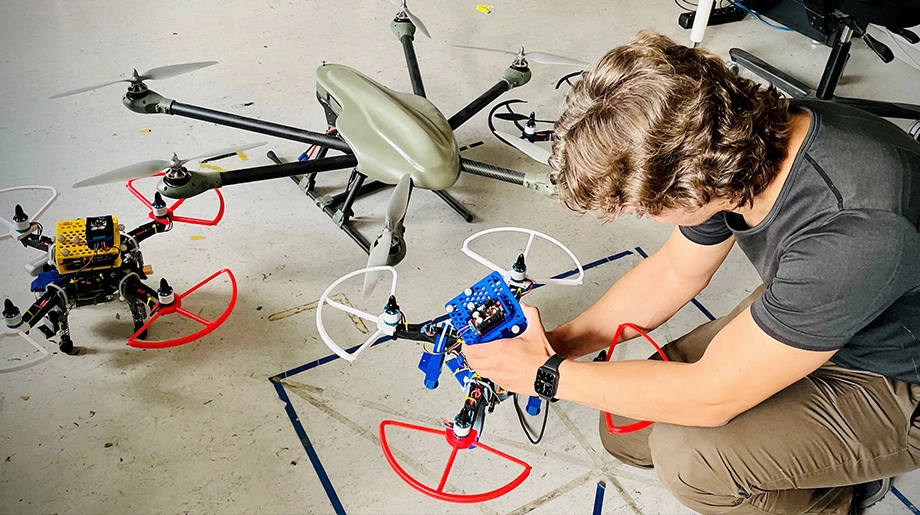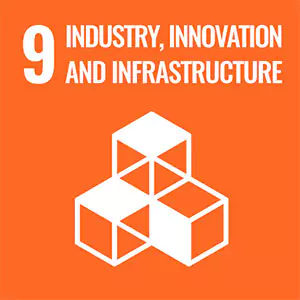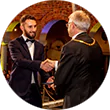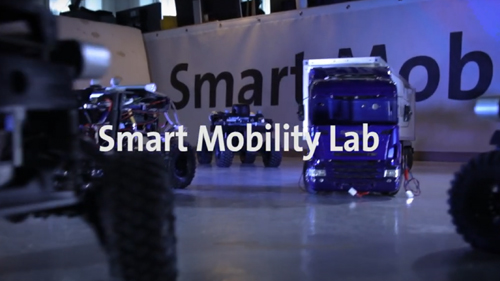MSc Systems, Control and Robotics
The master's programme in Systems, Control and Robotics focuses on the analysis, design and control of robots, autonomous vehicles, and other complex technical systems. It provides broad skills in the field and expertise through specialisations going deeper into areas such as autonomous sensing, AI, machine learning, decision making and control. Graduates face interesting careers, often in the robotics and autonomous vehicles industry, or as PhD students.

Systems, Control and Robotics at KTH
The master's programme in Systems, Control and Robotics equips you with the skills necessary to analyse, design and control complex technical systems such as robots and other systems with significant autonomous capabilities. These systems are essential today and will become even more important as new technology enters our workplaces, homes and shared public spaces.
The programme starts with a few mandatory courses that provide a solid foundation in systems, control and robotics, as well as scientific methodology in general. It continues with courses on one of two tracks chosen by the student. In addition to courses associated with the tracks, there are many elective courses within the broad areas of AI, machine learning and control. To be prepared for a diversity of future careers, you will also take a project course of choice, and participate in a seminar series in which an opportunity is provided to reflect on the societal context of systems, control and robotics, such as sustainability and ethics.

Robotics and autonomous systems
This track focuses on autonomous mobile systems that act in a dynamic world, including robots, drones and autonomous vehicles. Such systems need to act rationally based on information from complex sensors such as cameras or laser scanners, to achieve both short- and long-term objectives in a changing world. As an example, in the project course DD2419, you might be tasked with programming the sensing, actuation and planning modules of a small robot performing a mission in a challenging environment.
Learning, Decision and Control Systems
This track focuses on analysing and synthesising decision and control systems, both model-based, including classical control systems and AI, and data-driven systems with machine learning components. As an example, in the project course EL2425, you might be developing real time controllers for a set of 1:8 scale autonomous cars.
This is a two-year programme (120 ECTS credits) in English. Graduates are awarded a Master of Science Degree. The programme is given mainly at the KTH Campus in Stockholm by the School of Electrical Engineering and Computer Science (at KTH).
This is a two-year programme (120 ECTS credits) in English. Graduates are awarded a Master of Science Degree. The programme is given mainly at the KTH Campus in Stockholm by the School of Electrical Engineering and Computer Science (at KTH).
Master degree project
All students complete a degree project, typically during the second half of the second year, upon completing the necessary programme credits. The project may involve work in a relevant industry or a department at KTH, and may be combined with course work. For students who wish to pursue a career in research, the degree project offers an excellent opportunity to develop contacts and the skills necessary to work within a research group. For those students wishing to enter industry, it serves as an important introduction and practical foundation for a career with a prospective employer.
Courses in the programme
The courses in the programme cover topics such as robotics, control theory, artificial intelligence, machine learning and dynamical systems.
Courses in the master's programme in Systems, Control and Robotics
Future and career
A two-year master's degree in Systems, Control and Robotics rests on a core set of courses in systems, control and robotics and related subjects. It provides the opportunity to utilise a unique cross-section of courses from different disciplines – integrating, for example, Artificial Intelligence, Machine Learning and Control Theory – in order to create a comprehensive education. As systems, control and robotics engineers require extensive training in designing and analysing complex technical systems, this master's programme provides a strong foundation in theory and practice.
After graduation, you can expect to take on roles such as control and automation specialist, robotic navigation and perception specialist, AI and machine learning specialist or robotics engineer. Graduates from the programme often end up in the robotic and autonomous vehicle industry, such as ABB and Scania, or as PhD students at KTH and other universities.
Sustainable development
Graduates from KTH have the knowledge and tools for moving society in a more sustainable direction, as sustainable development is an integral part of all programmes. The three key sustainable development goals addressed by the master's programme in Systems, Control and Robotics are:



Good Health and Well-being
Advances in systems, control, and robotics enable technologies such as adaptive robotic assistants for older adults and rehabilitation robots that support physical recovery. Students gain expertise in sensor integration, control algorithms, and human–robot interaction, crucial for designing safe and effective assistive devices. These innovations improve patient care, reduce strain on healthcare professionals, and contribute to safer workplaces and better health outcomes.
Decent Work and Economic Growth
Automation and intelligent control systems make industrial production safer and more efficient, reducing hazardous tasks while boosting productivity. The programme trains students to design and optimise such systems, supporting sustainable job creation in high-tech industries. By fostering both safety and efficiency, graduates help industries remain competitive while upholding strong labour standards.
Industry, Innovation and Infrastructure
From autonomous transportation to AI-driven manufacturing, innovations in robotics are reshaping modern infrastructure. Students learn to design and integrate these complex systems, creating solutions that are scalable, resilient, and sustainable. Their skills strengthen industrial capacity and drive innovation in areas such as autonomous vehicles, smart logistics, and advanced manufacturing.
Faculty and research
The programme in System, Control and Robotics is given by the School of Electrical Engineering and Computer Science at KTH. The field of Electrical and Electronic Engineering at KTH is currently ranked 23rd in the world by QS. The area of Automation and Control at KTH is ranked 23rd in the world by Academic Ranking of World Universities (ARWU), also known as the Shanghai Ranking. Most courses in the programme are taught by the Division of Decision and Control Systems and the Division of Robotics, Perception and Learning (RPL).
The research projects at the Division of Decision and Control Systems focus on modelling, identification and control of industrial systems and applications in communication, autonomous systems, and system biology.
At the Division of Robotics, Perception and Learning, the research projects focus on topics such as mobile robotics, robotic manipulation and grasping, machine learning, computer vision, mapping and scene understanding, artificial intelligence, robotic planning, robotic control and decision making.








